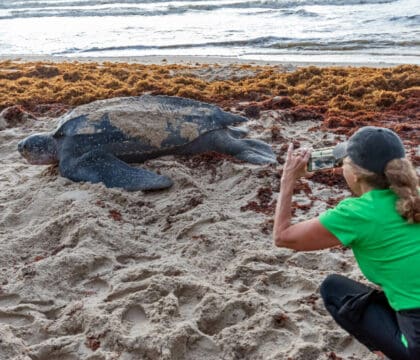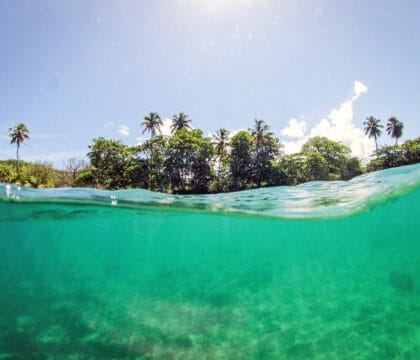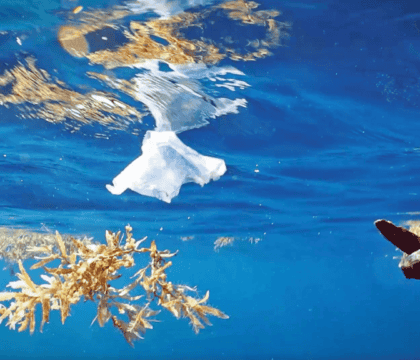May 15, 2015 • Trip Reports
In February I had the pleasure of leading a group of 12 avid snorkelers on Oceanic Society’s inaugural
expedition aboard the famed Raja Ampat liveaboard ship the Pindito. We spent 12 days exploring the most biodiverse tropical reef ecosystem on the planet, the Bird’s Head Seascape, guided by the Pindito team that has pioneered underwater exploration in Raja Ampat and been a leader in promoting marine conservation in the region.
We were accompanied by cetacean researcher
Benjamin Kahn, who has been studying the whales of the coral triangle for more than a decade. Benjamin is currently studying, among other things, the Indo-Pacific migratory corridors of east Indonesia, Papua New Guinea, and the Solomon Islands to understand the importance of these narrow, yet deep passages to large migratory marine species such as blue and sperm whales.
Video from a sperm whale encounter during our expedition.
Our expedition provided Benjamin with valuable research time in the Raja Ampat waters; we spent the mornings and afternoons snorkeling, and during the middle of day we conducted surveys for cetaceans. Benjamin has been doing these surveys alongside divers for the last 4 years, but we were his first group of snorkelers. Over the years, he has observed more than 12 species of cetaceans in Raja Ampat (of the 30 present in the Coral Triangle), and on a few occasions the groups have even managed to get in the water with the whales. Our long days out on the water provided valuable data points for Benjamin about where whales are found and, more importantly, how they are using these areas. Through the use of directional hydrophones and dedicated deck-top observation time we were able to spot multiple groups of whales over the days we were there. The clang of the ship bell and the yell of “blow” punctuated many of our afternoons.
Something that makes the Coral Triangle a unique area (in addition to the marine biodiversity found there—more than 450 species of coral and 1750 species of fish) is the fact that it has so much deep water habitat adjacent to shallow water habitat. In fact,
almost 85% of the Coral Triangle waters are deeper than 200 meters, causing you to find exceptional marine diversity with high overlap of near shore and deep sea habitats. Benjamin is using these sightings to identify whale hotspots and to examine how these hotspots overlap with development plans. In order to properly conserve and regulate the marine protected areas within the Coral Triangle it is vital to understand how things like shipping lanes and proposed extractive industry developments may overlap with whale migration corridors.
Our days on the Pindito were full of exciting snorkeling opportunities around multiple islands, and many afternoons having
intimate encounters with Bryde’s and sperm whales as well as many species of dolphin. The added benefit of dedicating some of our afternoons to whale surveys was that we also saw many other animals that we might have missed had we just been motoring through. During these times we saw sailfish and manta rays jumping, sea turtles, and large bait balls that were attracting multiple seabird species. Our group had truly wonderful experiences and at the same time was able to substantially contribute to the conservation research of the region.
If you’d like to be a part of our 2016 expedition, learn more here.




